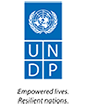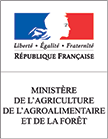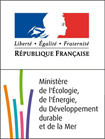
I live in the Tsavo Conservation area of Kenya, in a community that faces many problems on a daily basis which are intensified by climate change. Drought means women and children regularly walk over 10km every day to find water, education is poor and too expensive, unemployment is desperately high and people suffer from food insecurity.
The crops that do survive the extreme drought are often destroyed by wildlife. In 2006 we had 664mm of rainfall in my area but last year only 400mm. These problems are not unique to my community. Over 1 million people across Kenya are living on food aid while floods in other areas negatively affected 140,000 people last year.
These issues also affect people outside Africa. Did you know that 60% of California is now facing exceptional drought, or that large parts of the state live on bottled water? The wildfires in California are a stark reminder that climate change is REAL.
My community faces a lot of challenges and it is from this that I got the passion to go and study Community Development and Social Work in the city and then came back to my rural area in Kenya to try and figure out how to solve all these problems. I’m happy to be part of a large team that is conserving our remaining forests and from the conservation, my community has managed to tackle some of the focal issues that affect them.
I am a 28-year-old Kenyan working as a Community Relations Officer at Wildlife Works. Wildlife Works implements forest protection programs through carbon financing called Reducing Emissions from Deforestation and Forest Degradation, or REDD- a climate change mitigation strategy.
Forests are essential to human health and livelihoods – cleaning the air we breathe, providing the water we drink and producing the food we eat. Forests are also home to countless species of vital plants and animals. However, we continue to burn them.
Tropical forests are destroyed at a rate of 36 football fields per minute- an area 15 times the size of Dublin every day. Deforestation is now the second largest source of climate-changing greenhouse gas emissions, second only to fossil fuels.
By conserving nearly 500,000 acres of dry-land forest at our Kasigau Corridor REDD+ project in rural Kenya, we generate carbon credits, or offsets, to sell to individuals and companies who voluntarily offset their unavoidable emissions.
So far, carbon revenues have paid fees for over 3000 students to attend secondary school and university, allowed us to implement 10 water projects and water catchments and build 18 school rooms and other education facilities. Employment creation is our key conservation strategy- we provide 350 jobs through operating green sustainable industries, such as an eco-clothing factory and organic greenhouses.
My role at Wildlife Works is to educate and create awareness about environmental conservation and the links between deforestation and climate change amongst our community. We encourage our community to protect the forest for their own benefit. We use different ways to communicate what role they play in mitigating climate change. It’s important to adapt your message according to your audience.
Many people cannot read or write in my community, so I organize film viewings and informal open-air meetings. For young people, I organize plays and workshops in the local schools. One of the best ways of educating youth is through football matches. We organize tournaments every four months and have discussions before, during and after the matches. In one tournament I can reach over 400 young people.
It is now my wish to share with my fellow youth, the experiences I’ve encountered and also to tell the whole world about environment conservation and how it has worked for my community and for our project.
I believe that the Global Landscape Forum will create a platform where citizens of the world will come together to share their experience, success and challenges and from that we can create different ideas on how to make the world a better place.
Joseph Mwakima is one of the 10 young champions who will work on the “Education” Landscape challenge with Youth program’s partner: Wageningen UR.
Learn more about the Global Landscapes Forum’s Youth program, meet our 50 youth champions and discover the 5 Landscapes challenges they will take up, in December, in Paris.






































